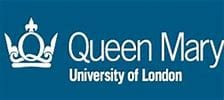


“The Emotional Cost of Caring” – Managing emotional burden when working with laboratory animals: role of communicating and assessing the impact of animal welfare on the resilience of co-workers.
Organised by QMUL and The Learning Curve (Development) Ltd.
Key Information
Date: Friday 10th May 2019.
Time: 9.30am to 4.30pm.
Location: Blizard Institute, Queen Mary University of London, E1 2EF.
Cost: Free but registration required.
Registration can be found here.
Further details
Inevitably, individuals who work with animals in the context of biomedical research will sometimes form bonds with the animals with whom they interact. Although human-research animal relationships may enhance the well-being and welfare of laboratory animals, they involve a moral cost to staff. Institutions should acknowledge the existence of these bonds and provide support mechanisms to help laboratory personnel deal with the emotional challenges of their profession.
This one day workshop focuses on working practices and challenges faced by laboratory animal care professionals and researchers. It will provide a forum to assist with building emotional resilience whilst being proud ambassadors for the care and welfare of the animals they are taken care of. Invited speakers include those with an interest in the human-animal bond and will discuss how those closely working with animals can utilize psychological techniques to effectively manage emotion. This workshop also aims to improve delegates’ self-confidence at communicating any concerns about harm: benefit analysis for animals used in research and encourage greater openness, particularly across technical staff and researchers.
Invited speakers include those researching the emotions and challenges of animal technicians within this field from the Universities of Oxford and Cardiff. Experts on the roles of communication from the medical professional field who have assisted in developing mental health programmes and understand the possible benefits of psychological counselling with experience in Mindfulness will be also speaking in the meeting.
The workshop, with presentations from experts and questions/discussion forum, provides a platform for those working with animals to comment openly about animal welfare, how it impacts them emotionally and will provide an insight into observations commonly experienced. There is a growing interest for this topic, particularly as institutions are being asked to be more proactive on the care and welfare of their animals used for research purposes. Promoting care and welfare requires great communication skills and it is utmost important to provide the staff with appropriate platform to balance their emotions and commitments when working with animal used for experimental purposes.
The lectures have been designed to ensure that they are suitable for students, technicians, veterinarians, researchers, regulators, teachers, trainees, academics and everyone interested in laboratory animal science and welfare. We hope that attendance at this workshop will make a positive
difference to you, whether that’s helping manage your own mental health and well-being or supporting animal welfare.
There will be an opportunity to network with attendees and speakers during the coffee and lunch breaks. Please note that registration is free but required. Deadline is 12/04/2019 and places are being allocated on a first come basis and may need to be limited to a maximum of 2 places per institute.
For further information please contact: s.j.pimm@qmul.ac.uk or J.lopez-tremoleda@qmul.ac.uk
The full agenda and further information about the location can be found here: PROGRAM EMOTIONAL COST OF CARING 2019-1wud8uf.



